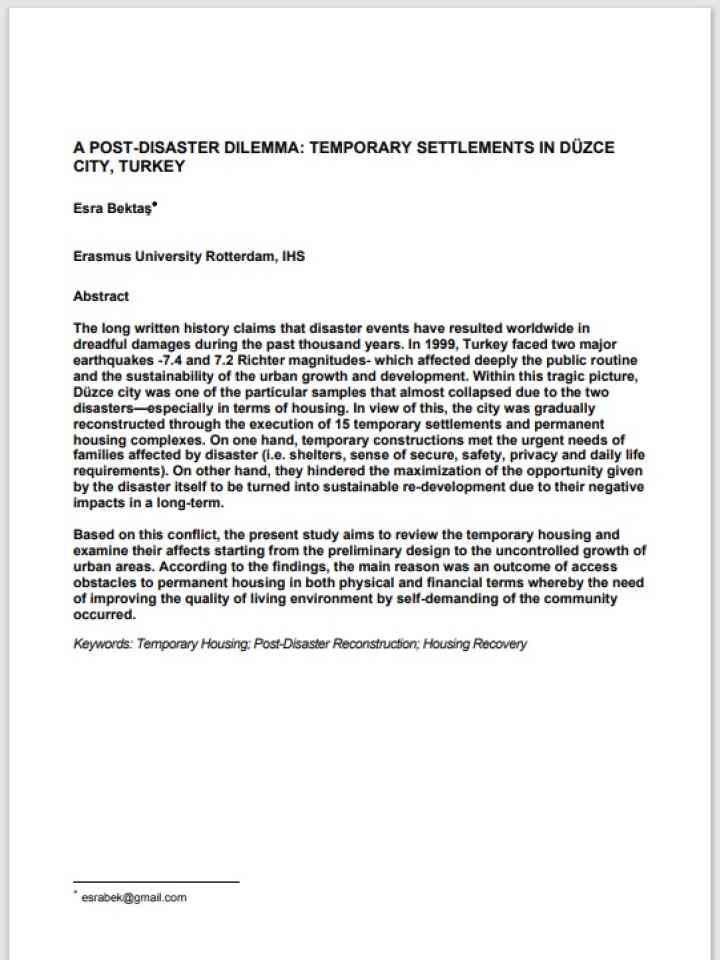A Post-Disaster Dilemma: Temporart Settlements in Duzce City, Turkey
The long written history claims that disaster events have resulted worldwide in dreadful damages during the past thousand years. In 1999, Turkey faced two major earthquakes -7.4 and 7.2 Richter magnitudes- which affected deeply the public routine and the sustainability of the urban growth and development. Within this tragic picture, Düzce city was one of the particular samples that almost collapsed due to the two disasters-especially in terms of housing. In view of this, the city was gradually reconstructed through the execution of 15 temporary settlements and permanent housing complexes.
On one hand, temporary constructions met the urgent needs of families affected by disaster (i.e. shelters, sense of secure, safety, privacy and daily life requirements). On other hand, they hindered the maximization of the opportunity given by the disaster itself to be turned into sustainable re-development due to their negative impacts in a long-term. Based on this conflict, the present study aims to review the temporary housing and examine their affects starting from the preliminary design to the uncontrolled growth of urban areas.
According to the findings, the main reason was an outcome of access obstacles to permanent housing in both physical and financial terms whereby the need of improving the quality of living environment by self-demanding of the community occurred.
Explore further
